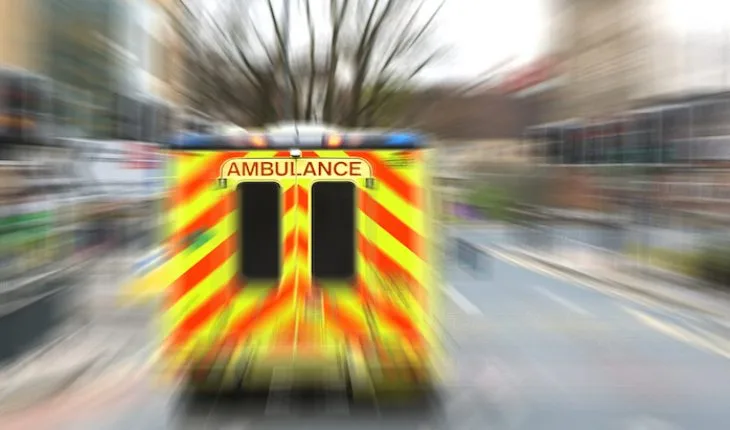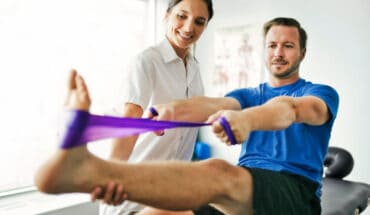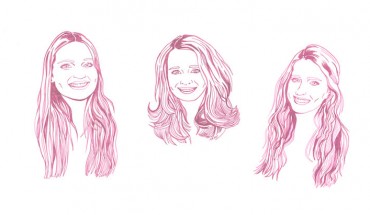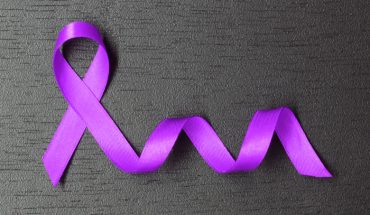My A&E Diary: Accident and Emergency wards can be frightening, stressful and downright unpleasant place to visit. They often seem close to bursting point with patients who range from car crash victims to the walking wounded, crying children to drunken adults. But these wards can be equally traumatic for the staff – who must not only deal with life and death decisions, but also cope with abusive patients, inadequate facilities and bundles of red tape.
Hannah James,* 29, is a junior doctor working in a busy A&E department in a hospital outside London. Despite the long hours and the constant stresses of dealing with sick and injured patients, she loves her job and wants to become an A&E consultant. Here, in the first part of a diary that spans two ten-hour shifts over the same weekend, she describes the highs and lows of life at the sharp end of medicine.
Friday 12.30pm-10.30pm
12.30pm
I have finally arrived at the hospital, after a 35-minute drive from my home, and I can’t find anywhere to park. There aren’t enough spaces for everyone, so I end up parking the car on a single yellow line right outside the A&E. The park attendant could clamp my car but he has not done so yet. Perhaps he feels sorry for me. The managers have their own car park, although they have to pay £100 a year for the privilege. I have had a good sleep and a can of coke, so I am feeling energetic. I have worked in the hospital for a year and a half and I like my job. It is high stress but rapid reward. Nothing compares to the buzz you get when you help to save someone’s life in the resuscitation room. A&E is still quite quiet. The cleaners have tidied away after last night’s rush. That said, dirty tissues and chewing gum wrappers litter the floor. There aren’t enough bins and people tend to drop things. The nurses are busy triaging waiting patients. The nurses are the frontline of any A&E department. Their first job is to get the patients’ details and decide if a case is minor, major or life threatening. I don’t wear a white coat. I prefer to be more casual and a white coat just gets in the way. I always have a stethoscope around my neck because I need it all the time. I chat to the other doctors and find out the gossip what has been happening overnight. Apparently, a patient came in with a stab wound, which is becoming more common. He survived and is now recovering in a surgical ward upstairs.
1.30pm
The red phone rings at the nurses’ station and everyone’s adrenaline levels soar. This means that an ambulance crew is bringing in a serious casualty who may need resuscitation. A call goes out to the trauma team in the hospital. These are doctors on call who are trained to deal with emergencies. The doors swing open and the ambulance crew push in a young man on a trolley. He is still conscious but he is sweating and looks pale. He is only 35 years old but he has just suffered a heart attack. He has arrested twice on the way to hospital and has had to be shocked to re-start his heart. He has not taken any drugs, but his cholesterol is very high. I give him clot-busting drugs to try and clear the blockage. It seems to be working and he is breathing better. When we have stabilised him, he is taken up to coronary care unit in the main hospital. I learn later that he pulls through.
2.30pm
A queue has built up because all the doctors have been dealing with the emergency case. Someone has complained about the wait and voices have been raised. The nurses take the brunt of it because they are on the front line. Patients tend to be much more polite to the doctors. We try and see everyone within four hours, even people with minor injuries. If we miss this target, it is called a breach and it shows up on our computer records. The hospital can lose stars and its budget can be cut if there are too many breaches. There are managers in this hospital who spend all their time checking that we are not going to breach. Panic sets in if a patient is reaching the four-hour deadline. It drives me crazy because it’s officialdom gone mad and not in the best interests of everyone. Very sick people may have to wait while we deal with an in-grown toe nail, just because the patient with the sore toe has been waiting for three hours and 55 minutes. I see a young woman with an inflamed belly button due to an infected piercing. I don’t really understand why she could not have waited to see her GP. A little boy has a cotton bud stuck in his ear. Someone else has a broken finger, which needs a splint. A child is crying with pain in his ear. He just needs some antibiotics and a hug from his mother.
3pm
The department has quietened down so I snatch a short break in the doctors? mess. The coffee machine is broken but someone has brewed a pot of tea. We can take an hour off in the course of a 10-hour shift. A nurse pops her head around the door. I am needed again. A pensioner has slipped on a step and may have a broken arm. His grandson has brought him in. The elderly gentleman is clearly in a lot of pain but he does not complain. I always like dealing with pensioners because they tend to be much more polite and helpful than younger people, some of whom behave as if they were doing us a favour. I give the patient some morphine and he goes away to have an X-Ray. He does have a broken arm so I put him in plaster.
4pm
It is getting a bit busier again and there are several children in the waiting room. We do have a box of rather battered toys but the TV is on the blink. The kids are bored and their mothers are irritated. A man comes in who says he has taken 96 Paracetamol over a two-day period for a sore tooth. This is a major accidental overdose and he could already have damaged his liver. We start on the antidote straight away and organise some blood tests. He waits on a trolley while the results come through. As it happens, his blood tests are normal and his liver function is fine. He is very lucky. Trolleys are beginning to stack up in the corridors. We are waiting to discharge patients into medical wards upstairs but the nurse on duty is still trying to find available beds. Amazingly, we have to stop taking any new patients because there is nowhere for the doctors to see them in private. I won’t examine people in a corridor for something like chest pain. We have six doctors hanging around unable to do their job because the unit is full.
5.30pm
We have found enough beds for patients who need to be admitted to the main hospital, and things can get moving again. Almost immediately, the red phone rings. This time, the ambulance crew are bringing in the teenage victim of a car crash. He is only 18 and he had to be cut out of his car, which went into a tree. Three friends, who were travelling with him, escaped unhurt. The young man’s parents arrive almost the same time as the ambulance. They are white with shock as they see him carried in on a back board in case he has a neck injury. We examine his spine carefully but he seems to have no problems there. In fact, he has only suffered a broken thigh bone in his leg and cuts and bruises. The break is quite bad, however, and he will need to be admitted. I leave him with his parents by his side. They are very relieved and his mother is in tears. Apparently, he only had his new car for three days. It is a complete write-off.
6.30pm
An elderly lady is wheeled in to see me. I have never seen anyone look so pale and I immediately suspect anaemia. In fact, her haemoglobin count is through the floor, just 3.5. A healthy woman should have a count of at least 11. She is not going anywhere tonight because she is really unwell so we arrange for her to stay overnight in a ward upstairs. She has to wait on a trolley but she is taken upstairs a few hours later. I hope that no one needs an MRI scan. Our MRI scan only operates until 6pm. After that, patients will need to be driven by ambulance to the nearest 24-hour MRI centre, which is an hour away. I see a few people with coughs and colds who are not registered with GPs. It can be quite difficult to get on a GP‘s list because of the acute shortage of family doctors, so I feel a bit sorry for them. It would be better though if they could visit a doctor nearer to home. Occasionally, I see someone who is clearly a health tourist. They tell me that they have arrived in the country and discovered that they have a club foot which they have had since birth. But we never turn anyone away. It’s not my job to act as an NHS enforcer.
7.30pm
The first Saturday night casualties begin to appear. Lots of young people get very drunk and collapse on the streets. The police will call an ambulance and bring them here. A man comes in unconscious and I recognise him immediately. I have seen him at least 200 times. We put him on a trolley to sleep it off. I refuse to give him any more expensive scans in the unlikely chance that this time he has suffered a brain haemorrhage. Our hospital bobby strolls by. I am glad that we have our very own dedicated police officer. He works shifts and he gets called out whenever there is a violent incident in the department. The patients are normally quiet but their friends and relatives can cause havoc in the waiting room. Luckily I have never been assaulted although plenty of people have threatened to take a swing at me.
9pm
It is the calm before the storm. Saturday night is one of the busiest nights of the week. I take a short break to get something to eat and read a newspaper in the doctors’ mess. It looks like a bomb has hit the place. When I emerge I see the man who has been admitted 200 times wander down the hall. He has discharged himself and his girlfriend is waiting to take him home. A young girl comes in with a bright red face. Her mouth is swollen and she is gasping for breath. She is very anxious but she manages to tell me that she has a shellfish allergy. This evening, she accidentally ate a prawn and she is having an allergic reaction. Today, I have already seen three people with allergies. The numbers are steadily rising. Allergy rates have risen three fold over the past 20 years. I give the patient some antihistamines intravenously to reduce the swelling. She makes a rapid recovery and she leaves the unit an hour later.
10pm
My shift is drawing to an end and I am beginning to run out of steam. I feel tired but elated. It has been a good day and no one has died. Last week, someone died on me every single day. I don’t take it personally, but it can get a bit draining. The worst bit is telling the relatives. We all get some training when we are at medical school, but there is no preparation for telling a mum that her daughter has died. Sometimes relatives are completely hysterical. Other times, they are completely calm.
10.30pm
Time to clock off. My car is still there and it hasn’t been clamped. I get in and drive home. Should I spend what little remains of the evening washing my hair or go to Tescos? I don’t have much of a social life. I just don’t have time.
*All names mentioned are altered as the author wishes to remain anonymous
- Tresiba® demonstrated significantly lower rates of overall, nocturnal and severe hypoglycaemia vs insulin glargine U-100 - 14th June 2016
- Legal headache for medics - 26th May 2016
- The shaming of Dr Issam Abuanza - 25th May 2016







